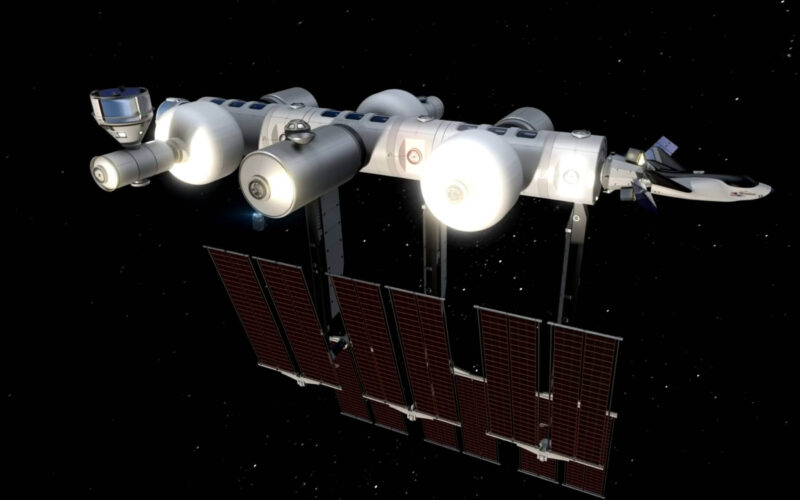Blue Origin, a space tourism company founded by billionaire Jeff Bezos, has unveiled a commercial space station project.
The project is called Orbital Reef and described as “a mixed-space business park in space”. The station will be developed as a collaboration between several companies and research institutions.
In April 2021, Blue Origin’s main collaborator, Sierra Space, announced plans to build an inflatable space station. It seems that the new project will retain much of Sierra’s original design, but the additions, made by Blue Origin and other companies, will expand on it significantly.
Blue Origin will provide rigid core modules, launched on the company’s upcoming New Glenn rocket. Sierra Space, a subsidiary of Sierra Nevada, will provide additional inflatable modules and serve the station with its Dream Chaser cargo spaceplane.
Boeing will serve the station with its Starliner crew capsule and build a service module, while additional research facilities and structures will be provided by American tech company, Redwire Space.
The project also involves Genesis Engineering Solutions, which is developing a special single-person service pod, and a consortium of 12 universities, led by Arizona State university (ASU), each with their own research programs.
According to promotional material, Orbital Reef is scheduled to be operational by the end of 2020s. It will house research facilities, a hotel, and other modules for use, lease or ownership by companies that are interested in having a presence in orbit.
Blue Origin has been operating its suborbital New Shepard capsule since 2016. Its heavy-lift orbital rocket, New Glenn, has been in development for almost a decade and, although originally slated for its first flight in 2020, it is yet to be built.
Recently, the company announced a host of ambitious developments, including a rocket cargo transportation system for earth-to-earth flights and a moon landing module. However, the contract was awarded to SpaceX Starship, leading to an avalanche of lawsuits.

